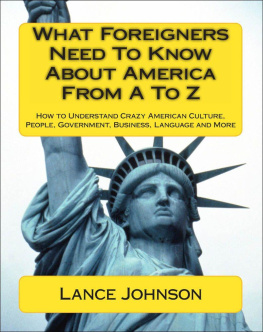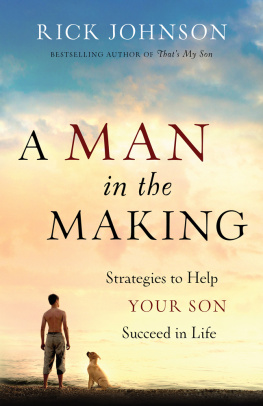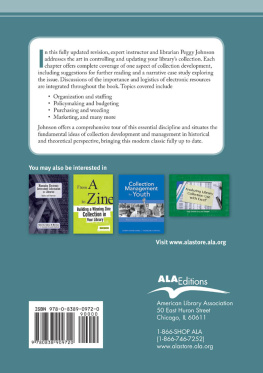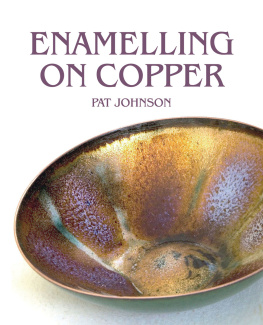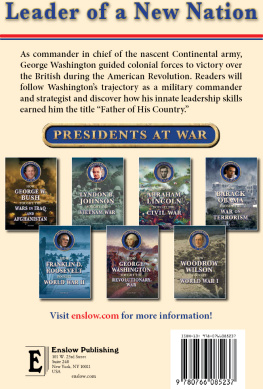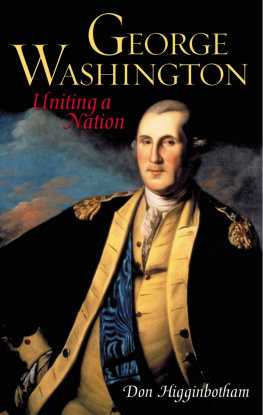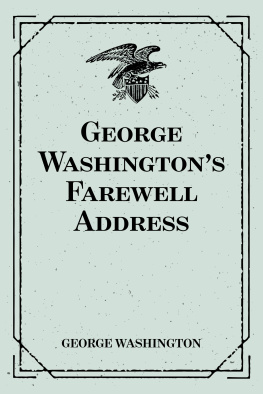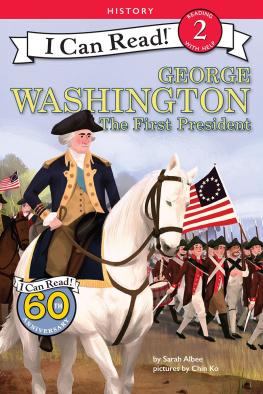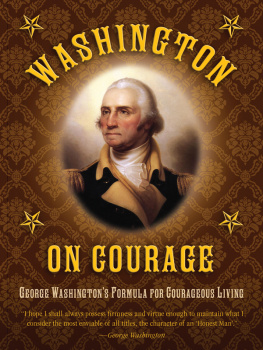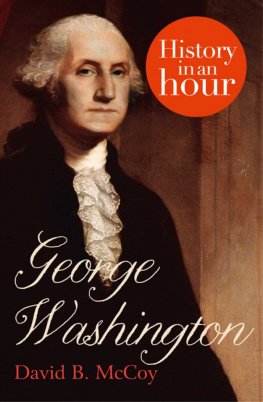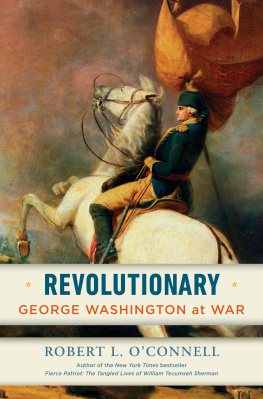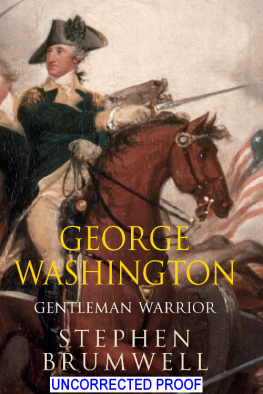Johnson - George Washington
Here you can read online Johnson - George Washington full text of the book (entire story) in english for free. Download pdf and epub, get meaning, cover and reviews about this ebook. year: 2006;2014, publisher: HarperCollins e-Books, genre: Non-fiction. Description of the work, (preface) as well as reviews are available. Best literature library LitArk.com created for fans of good reading and offers a wide selection of genres:
Romance novel
Science fiction
Adventure
Detective
Science
History
Home and family
Prose
Art
Politics
Computer
Non-fiction
Religion
Business
Children
Humor
Choose a favorite category and find really read worthwhile books. Enjoy immersion in the world of imagination, feel the emotions of the characters or learn something new for yourself, make an fascinating discovery.

- Book:George Washington
- Author:
- Publisher:HarperCollins e-Books
- Genre:
- Year:2006;2014
- Rating:4 / 5
- Favourites:Add to favourites
- Your mark:
- 80
- 1
- 2
- 3
- 4
- 5
George Washington: summary, description and annotation
We offer to read an annotation, description, summary or preface (depends on what the author of the book "George Washington" wrote himself). If you haven't found the necessary information about the book — write in the comments, we will try to find it.
George Washington — read online for free the complete book (whole text) full work
Below is the text of the book, divided by pages. System saving the place of the last page read, allows you to conveniently read the book "George Washington" online for free, without having to search again every time where you left off. Put a bookmark, and you can go to the page where you finished reading at any time.
Font size:
Interval:
Bookmark:
The Founding Father
EMINENT LIVES

To my American granddaughter
Eminent Lives, brief biographies by distinguished authors on canonical figures, joins a long tradition in this lively form, from Plutarchs Lives to Vasaris Lives of the Painters , Dr. Johnsons Lives of the Poets to Lytton Stracheys Eminent Victorians . Pairing great subjects with writers known for their strong sensibilities and sharp, lively points of view, the Eminent Lives are ideal introductions designed to appeal to the general reader, the student, and the scholar. To preserve a becoming brevity which excludes everything that is redundant and nothing that is significant, wrote Strachey: That, surely, is the first duty of the biographer.
A S THE CENTRAL ACTOR in the American Revolution, George Washington was one of the most important figures in world history. As Americas commander in chief throughout the eight-year struggle against Britain he effectively liberated the thirteen colonies from imperial rule. He then presided over the process whereby the new nation drafted, ratified, and enacted its federal Constitution. Finally, for eight years he directed the administration that put the Constitution to work, with such success that, suitably updated and amended, it has lasted for nearly a quarter of a millennium.
The Revolution he thus led to success was the first of a series that created the modern world in which we live. Its spirit was animated by the same love of representative government and respect for the rule of law that had produced Englands unwritten constitution over many centuries. Thanks to Washingtons genius, that spirit was successfully transferred to the new American nation. Subsequent revolutions, in France in the 1790s, and in Latin America during the following quarter century, were marred by tragedies of violence and ambition that led to lasting instability, in which the rule of law could not take root. This pattern was repeated, all too often, in the revolutions of the twentieth century, whereby the peoples of Asia and Africa became independent. Throughout this whole period, however, the United States clung to the principles for which Washington fought, and followed during his administrations. They enabled it to survive a near-fatal civil war, to become the worlds largest economy, to take in the poor of the planet and turn them into the richest people in history, and finally, at the end of the twentieth century, to emerge as the sole superpower. At the beginning of the twenty-first century, the United States seems set to play the leading part in making the earth secure and democratic. In this immense process, then, Washington played, and still plays, a unique role, both as founding father and exemplar of moderation and wisdom.
What sort of man was Washington, and how did he achieve so much? There ought to be no difficulty in answering this question if documentation alone could supply an answer. For more than a third of his life he worked in the service of his country, and all that he did officially is recorded in the National Archives on a scale no European state could then equal. The American nation-state was born, in public, as it were, and minutely recorded. In addition, from the age of about fourteen, Washington deliberately preserved every scrap of paper belonging to him, including diaries, letters sent and received, accounts, and other day-to-day transactions. As he grew older, he arranged these papers in chronological order, and by name and subject. He seems to have known from an early stage in his career that he would be a figure in history, and he therefore wanted the record to be preserved accurately with the particular object of demonstrating that the offices he held were undertaken from duty, not pride. His overwhelming ambition was to be thought unambitious. His obsession with his papers was thus a strange combination of modesty and self-awareness. He took his archive with him when he went to war, and his personal guard was under strict instructions to protect it with their lives and hustle it to a secret place of safety if the headquarters came under threat. After the war it went to his house, Mount Vernon, and was later hugely augmented by his papers as a president, preserved and sorted by a private secretary and archivist. When Washington died, his assistant Jared Sparks took the entire archive to Boston whence, in 1832, it was delivered to the Library of Congress, which had bought it from the heirs. Mounted, one document per page, hinged at left, and bound in leather, the papers occupy 163 linear feet of shelving, and are sold on 124 reels of microfilm, now on disc. Taken together, they constitute the most complete record of a life in the entire eighteenth century, exceeding by far the vast quantities of memorabilia left behind by James Boswell, for instance, or Horace Walpole.
Despite this, and despite the innumerable accounts of him by contemporaries, and the mountainous literature compiled by historians, so vast that probably no one person can read and digest it, Washington remains a remote and mysterious figure. He puzzled those who knew and worked with him, and who often disagreed violently about his merits and abilities. He puzzles us. No mans mind is so hard to enter and dwell within. Everyone agreed, and agrees, he was a paragon. But a rich or an empty one? A titan of flesh and blood or a clockwork figure programmed to do wisely? Let us inquire.
The first important fact is that Washington was of impeccable English ancestry and came from the class he admired the most: the independent gentry who owned land. All his life he aspired to behave like a gentleman and to own as much land as he could farm. These gentlemen farmers came from Northampton in the heart of England and were hugely loyal to the monarchy, though Northampton the city, a haunt of shoemakers, is also notorious for producing rebels. In 1657 John Washington, second officer on the ketch Sea Horse , of London, sailing to Virginia to pick up a cargo of tobacco, was wrecked on a Potomac shoal, near where Washington the city stands. He decided to settle in Westmoreland County, married Anne Pope, daughter of a substantial man serving in the Virginia House of Burgesses, and so acquired seven hundred acres at Bridges Creek, plus the capital to begin farming. He became vestryman, burgess, magistrate, and militia colonel, helped to suppress Bacons Rebellion in 1676, and died owning more than eight thousand acres, including an estate at Hunting Creek, higher up the Potomac, said to be twenty-five hundred acres. This became Washingtons Mount Vernon, the fixed center of his life, which he personally and meticulously surveyed and found to encompass 2,126 acres.
By the time Washington was born, February 22, 1732, his family had been established for more than three generations and nearly a century, as members of the Virginia elite, self-governing and practicing representative (though not democratic) rule in the English parliamentary tradition. It is important to grasp that Washington saw himself, from boyhood, as part of a ruling class that had run its own affairs as long as anyone could remember, or as the English had always put it, from time immemorial. Any change, therefore, from without, was usurpation, and to resist it was a moral duty, as well as obvious self-interest.
Washingtons father, Augustus or Gus Washington, had ten children by two wives, not unusual in eighteenth-century Virginia, an enthusiastic philoprogenitive colony, whose population increased from 125,000 in 1732, the year Washington was born, to nearly 500,00 in 1775, the year he became commander in chief. Gus, who died when Washington was eleven, was only moderately well off, though he owned ten thousand acres and forty-nine slaves, and operated six iron forges. His household possessions were modest: his silver was worth 125.10 (colonial money was based on the pound sterling till the end of the 1770s) and consisted of eighteen small spoons, seven teaspoons, a soup spoon, a watch, and a silver-hilted sword. He had two china tea sets, worth 3.6d, a fine hall looking-glass, a desk or screwtoire, one armchair, and eleven leather-bottomed chairs, three old chairs, an old desk and table, thirteen beds scattered about the house, window curtains, six pairs of good sheets, ten inferior ones, seventeen pillow cases, thirteen tablecloths, and thirty-one napkins. Working in and around the house were thirteen slaves, seven of them able bodied (adult and fit). Gus was rich enough, however, to send his sons Augustus and Lawrence to his old school in the north of England, Appleby, which, under its famous headmaster Richard Yates, was the best school in the country. Gus also had his clothes made in England, a practice followed by Washington himself up to the Revolution. Life among the Virginian gentry at that time was simple. Washingtons wife, Martha, reminiscing in 1798, said only one family had a carriage, ladies traveled on horseback, and a quarter pound of tea was a very great present. Gus was a blond giant, and Washington inherited his physique. Otherwise he left little ostensible impression on his famous son. The story of the hatchet and the cherry tree is an invention (1800) by Washingtons first hagiographer, Parson Weems, a Bible salesman. In the thousands of pages of Washingtons personal correspondence, he mentions his father only twice. By contrast, his mother, Mary Ball, Guss second wife and a wealthy woman in her own right, was a formidable creature whom Washington treated with the greatest possible respectand reserve. He referred to her publicly as my revered Mother, by whose Maternal hand (early deprived of a Father) I was led from childhood. A cousin and schoolfellow of Washingtons wrote: Of the Mother I was ten times more afraid than I ever was of my own parentsI have often been present with her sons, proper tall fellows too, and we were all as mute as mice. She was commanding, used to being obeyed.
Font size:
Interval:
Bookmark:
Similar books «George Washington»
Look at similar books to George Washington. We have selected literature similar in name and meaning in the hope of providing readers with more options to find new, interesting, not yet read works.
Discussion, reviews of the book George Washington and just readers' own opinions. Leave your comments, write what you think about the work, its meaning or the main characters. Specify what exactly you liked and what you didn't like, and why you think so.

